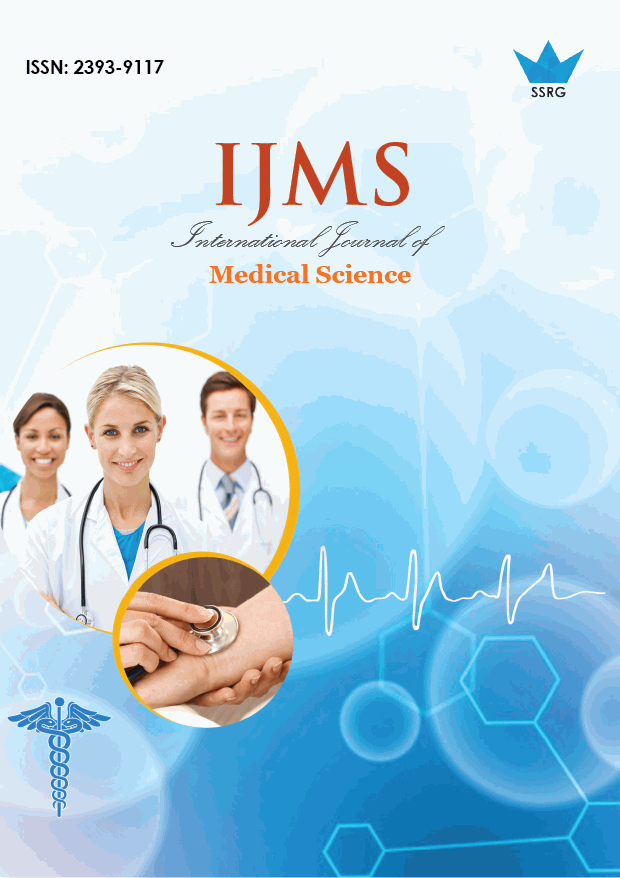Energy Drinks Consumption among Sarajevo High School Students Sample

| International Journal of Medical Science |
| © 2020 by SSRG - IJMS Journal |
| Volume 7 Issue 11 |
| Year of Publication : 2020 |
| Authors : Catovic Amra, Ziga Elvedina |
How to Cite?
Catovic Amra, Ziga Elvedina, "Energy Drinks Consumption among Sarajevo High School Students Sample," SSRG International Journal of Medical Science, vol. 7, no. 11, pp. 19-22, 2020. Crossref, https://doi.org/10.14445/23939117/IJMS-V7I11P104
Abstract:
Energy drinks are increasingly popular among adolescents. They are marketed to improve concentration and to reduce tiredness. Their consumption can deteriorate young people's physical and mental well-being, and it is important to implement appropriate preventive measures for protecting the health of young people. This research aimed to determine the frequency of energy drink consumption among high school students and to reveal their attitude towards the effects of energy drinks. A cross-sectional survey was conducted at Fifth gymnasium Sarajevo and Medical high school – Jezero, Sarajevo during May 2017. Ministry approved its conduction of Education, Science, and Youth of Sarajevo Canton. Data were collected from a sample of 495 students. School grade, gender, socioeconomic status (parental employment), and physical activity correlated with EDs consumption patterns. More than half of the respondents (61.62%) reported a defined energy drinks consumption pattern with no association with sample characteristics. There is a strong need for continuous education in the field of EDs with the aim and prevent health disorders of young people.
Keywords:
energy drinks, consumption, adolescents, survey
References:
[1] J. L. Miles-Chan, N. Charrière, E.K. Grasser, J.P. Montani, A.G. Dulloo, - The thermic effect of sugar-free Red Bull: do the non-caffeine bioactive ingredients in energy drink play a role? Obesity., vol. 23(1) (2015) 16-9.
[2] S. Zucconi, C. Volpato, F. Adinolfi, E. Gandini, E. Gentile, A. Loi, L. Fioriti. - Gathering consumption data on specific consumer groups of energy drinks. Supporting Publications, 394. 2013.
[3] KA Vercammen, JW Koma, S.N. Bleich, - Trends in Energy Drink Consumption Among US Adolescents and Adults, 2003–2016. Am J Prev Med., vol. 56(6) (2019) 827-833. [4] S. Scuri, F. Petrelli, M. Tesauro, F. Carrozzo, L. Kracmarova, I. Grappasonn, - Energy drink consumption: a survey in high school students and associated psychological effects. J Prev Med Hyg., 59:E75–E79. 2018. [5] B. Campell, C. Wilborn, P.L. Bounty, L. Taylor, M.T. Nelson, M. Greenwood, et al., - International Society of Sports Nutrition position stand: energy drink. J Int Soc Sports Nutr., 10:1. 2013. [6] A. Nehlig, J.L. Daval, G.Debry, - Caffeine and the central nervous system: mechanisms of action, biochemical, metabolic and psychostimulant effects. Brain Res. Brain Res Rev, 17(2), (2009) 1992 139–170. [7] C.J. Reissig, E.C. Strain, R.R. Griffiths, - Caffeinated energy drinks: a growing problem. Drug Alcohol Depend., 99(1–3) 1–10. [8] S.M. Seifert, J.L.Schaechter, E.R. Hershorin, S.L. Lipshultz, - Health Effects of Energy Drinks on Children, Adolescents, and Young Adults. Pediatrics., vol. 127(3) (2011) 511–528.
[9] A. Catovic, M. Besir, - A Cross-Sectional Study on Sugar-Sweetened Beverages Consumption Patterns and Nourish Status Among Students at Faculty of Medicine of Sarajevo University. Biomedical Sciences, vol. 6(3) (2020) 52-55.
[10] Centers for Disease Control and Prevention. The CDC Guide to Strategies for Reducing the Consumption of Sugar-Sweetened Beverages, (2010) 1-41.
[11] World Health Organization. Guideline: Sugars intake for adults and children. Geneva: World Health Organization. 2015.
[12] BSDA. Code of practice on energy drinks. London: British Soft Drinks Association. 2015.
[13] S. Visram, M. Cheetham, D.M. Riby, S.J Crossley, AA Lake, - Consumption of energy drinks by children and young people: a rapid review examined evidence of physical effects and consumer attitudes. BMJ Open. Vol. 6:e010380.2016.
[14] World Medical Association. World Medical Association Declaration of Helsinki: Ethical Principles for Medical Research Involving Human Subjects. JAMA., 310(20) (2013) 2191-2194.
[15] V. De Sanctis, N. Soliman, A.T. Soliman, H. Elsedfy, S. Di Maio, M. El Kholy, B. Fiscina, - Caffeinated energy drink consumption among adolescents and potential health consequences associated with their use: a significant public health hazard. Acta Biomed. vol.88(2) (2017) 222-231.

 10.14445/23939117/IJMS-V7I11P104
10.14445/23939117/IJMS-V7I11P104